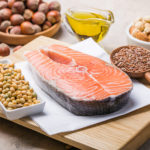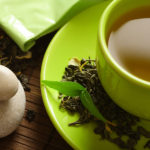By Bonnie Jenkins, Advanced Natural Wellness
You might not think so, but breast cancer is an equal opportunity disease. Not only does it cut across racial and economic lines, both women and men can get this type of cancer. Although it’s rare in men, approximately 450 of them died of the disease in 2007. That’s compared with an estimated 40,000 women whose lives were claimed by breast cancer last year. Next to skin cancer, breast cancer is the most common form of cancer in women. In fact, one out of eight American women who live to be 85 years of age will develop breast cancer.
Of course, even though breast cancer seems to be on the rise, your chances of developing it aren’t cast in stone. You can improve your odds against this devastating disease with some simple lifestyle strategies.
Lower Your Exposure To Environmental Estrogens
Open your arteries, improve blood flow for a new health miracle...
Did you know your circulatory system has over 60,000 miles of arteries, veins and other blood vessels, if stretched end to end?
But as you age, your blood vessels undergo changes, which may cause them to stiffen, thicken and get clogged.
GOOD NEWS! Doctors have now identified a “Miracle Molecule” inside your arteries that helps OPEN your arteries and IMPROVE blood flow.
It’s what Dr. Valentin Fuster calls it, "One of the most important discoveries in the history of cardiovascular medicine."To you, that means...
- Healthy blood pressure
- Sharper mind and memory
- Skyrocketing energy and muscular strength
- Increased pleasure and passion in the bedroom
- Improved circulation to every cell and organ in your body
Go here to discover a new natural way to significantly boost the levels of this miracle molecule in YOUR body NOW!
One way to keep breast cancer at bay is by lowering your exposure to environmental estrogens. Women with high estrogen levels have an increased risk for breast cancer because estrogen causes cells to divide and grow. Estrogens include those produced in your body as well as xenoestrogens, synthetic substances that mimic the activity of natural estrogens. Xenoestrogens can be found in many of the items you use every day including cosmetics, household cleaners, fuels, plastics and prescription drugs.
Food can also be a source of estrogen, especially produce which often carries pesticide residue. Avoid this secondary pesticide exposure by selecting organic foods as often as possible. In addition to reducing estrogens, the higher levels of antioxidants in organic foods lower your cancer risk. Certain fruits and vegetables are also rich in phytochemicals that are known to help reduce the risk of breast cancer. For example, cruciferous vegetables—broccoli, cabbage, kale and cauliflower—stop cancer cells from growing. They also slow down the action of estrogen in breast cancer cells and inhibit tumor growth.
Are You Suffering From...
- Love handles and a pot belly
- Romance that isn't what it used to
- Forgetfulness and inattention
- Low (or no) strength and endurance
- A sex drive that's shifted into neutral...or worse
If so...you may have Mature Male Burnout. Click here to discover more about this unique condition and what you can do about it.
Diet Matters
When it comes to breast cancer risk, the rest of your diet matters, too. Replace red meat with fish. Fish is packed with breast-friendly omega-3 fatty acids. One recent study shows that omega-3s can even suppress the over expression of the HER2 gene that predisposes some women to breast cancer. Soy is another good meat alternative. Some people believe that soy is harmful because it contains plant estrogens called phytoestrogens. But studies suggest that these phytoestrogens actually counteract the harmful effects of xenoestrogens.
One study evaluating soy’s impact on the risk of breast cancer was recently carried out at Hanyang University in Seoul, South Korea. The researchers compared 362 women with confirmed breast cancer to the same number of healthy women who were about the same age. They found that a high soy protein intake was associated with a reduced breast cancer risk in both premenopausal and postmenopausal women. This and other studies strongly suggest that adding tofu, soy milk and other soy foods to your diet can help prevent breast cancer. You can also boost your soy intake with supplemental soy which is rich in beneficial isoflavones. Take between 100 and 500 mg. of supplemental soy daily. But if you currently have or have had breast cancer, you may want to avoid soy until more is known about its impact on existing cancer cells.
Green Tea
Drinking green tea can also stave off breast cancer because it helps activate enzymes that aid in the detoxification of carcinogens. Green tea contains polyphenols, including epigallocatechin gallate (EGCG), which has been found to slow breast cancer growth. Green tea also lowers estradiol, an estrogen that’s associated with a higher risk for cancer, and reduces the formation of blood vessels that the body makes to feed hungry cancer cells. If you aren’t a fan a green tea, you can also get its goodness from supplements. Look for a standardized supplement that provides 97 percent polyphenol content—which is equivalent to drinking four cups of tea.
Maintain A Healthy Weight And Exercise
Finally, maintaining a healthy weight and exercising regularly also lower your risk for breast cancer. Studies show that you can reduce your risk for breast cancer as much as 50 percent with just 30 minutes of aerobic exercise every day. Adopting these healthy habits now may help prevent a future marred by breast cancer. After all, it’s never too early—or too late—to prevent cancer.
References:
Kim MK, et al. Dietary intake of soy protein and tofu in association with breast cancer risk based on a case-control study. Nutrition and Cancer. 2008;60:568-576.
Menéndez JA, et al. HER2 (erbB-2)-targeted effects of the omega-3 polyunsaturated fatty acid, alpha-linolenic acid (ALA; 18:3n-3), in breast cancer cells: the “fat features” of the “Mediterranean diet” as an “anti-HER2 cocktail.” Clinical and Translational Oncology. 2006;8:812-820.
Ogunleye AA, et al. Green tea consumption and breast cancer risk or recurrence: a meta-analysis. Breast Cancer Research and Treatment. 2009 May 13. [Epub ahead of print]






